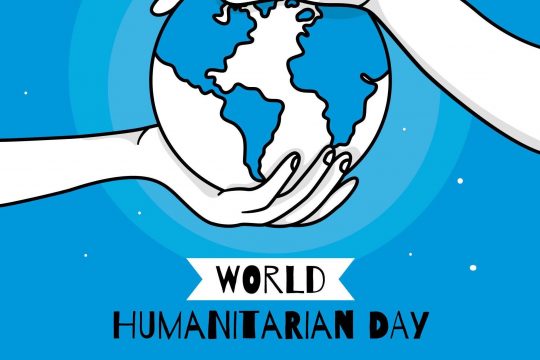The Asian Preparedness Partnership (APP) is guided by the APP Regional Steering Committee to promote partnerships and regional cooperation between the 6 countries in South Asia and South-east Asia. Representatives from NDMOs, local humanitarian organisation networks and private sector network from six partner countries − Sri Lanka Cambodia, Myanmar, Pakistan, Nepal and Philippines − came together in Kathmandu, Nepal to pause, reflect and deliberate on the way forward, from the mobilization phase of the APP and beyond.
Following an exciting exchange of new ideas and experiences on nurturing innovative ideas for disaster risk management (DRM) at the “Innovations Forum for Safer Asia”, APP held the Consultative Committee Meeting and 3rd APPRSC the following day to discuss its vision and strategic directions for 2030. The APP multi-stakeholder partnership is supported by Bill & Melinda Gates Foundation (BMGF), United States Agency for International Development (USAID) and implemented by Asian Disaster Preparedness Center (ADPC).
The consultative meeting opened up discussions on the “Way Forward for APP”, to reflect both the significant achievements, challenges and its vision with national partnerships in promoting localization and aligning with global frameworks such as the SFDRR, SDGs and core commitments of the WHS. Partners from countries took this opportunity to brainstorm and discuss on APP’s 2030 priority areas, notably policy environment and enablers, key partnerships and stakeholder coordination, knowledge sharing and communication, capacity development, and sustainability. The groups were invited to share their key recommendations for each dimension.
In the second half, the 3rd APPRSC was moderated by Mr. Hans Guttman, Executive Director of ADPC, who presided over the opening ceremony along with Dr. Valerie Bemo, Deputy Director, BMGF. Dr. Bemo was proud of APP’s achievements over the past 3 years since its establishment and was eager to hear where BMGF can provide future support. Representatives from the 6 national preparedness partnerships briefed on the country updates and progress in implementing their action plans, citing key activities undertaken from May 2018 as well as key activities planned for next year. Mr. Sisira Kumara, Director, ADPC presented highlights from the reflections of the consultative meeting on the road ahead for APP from its current phase in strengthening preparedness for response in Asia.
Following the country updates, Ms. Frederica Basadonne from Relief Applications demonstrated how the Practitioners Roster works on the APP Portal to identify qualified experts within APP program countries, and also discussed future add-ons such as a mobile application and direct messaging capabilities. Ms. Hilde Jakobsen, Senior Gender Advisor from ADPC provided a comprehensive overview on integrating gender-equal and rights-based approaches in APP activities, specifically through further research, guidance notes and training sessions in partnership with APP countries with support from the ongoing Building Resilience through inclusive and climate-adaptive Disaster Risk Reduction in Asia-Pacific (BRDR) program.
Mr. Guttman pointed out that “ADPC is looking for these synergies to see how we can get programs to work better together and learn from each other”. Furthermore, he apprised on the upcoming Global Platform for DRR to be held in Geneva, Switzerland from 13-17 May 2019 and looked forward to APP’s contribution in this strategic dialogue.
In line with the recommendations of the last APPRSC held on 25 April, 2018 in Bangkok, Thailand, the Myanmar Preparedness Partnership (MPP) took over the Co-Chair for the 4th APPRSC in 2019. Concluding the APPRSC meeting, Ms. Valerie Bemo highlighted the creativity and efforts of all countries and their initiatives to demonstrate shared progress and enriching this partnership in making Asia safer and resilient.


